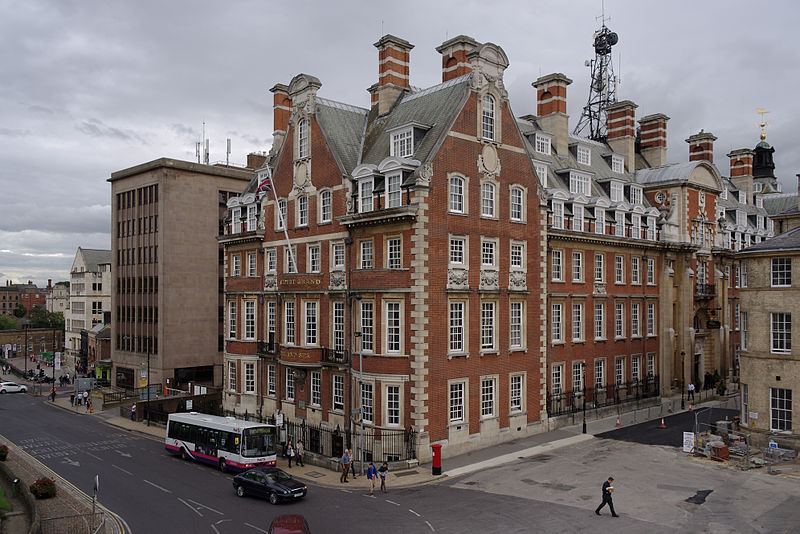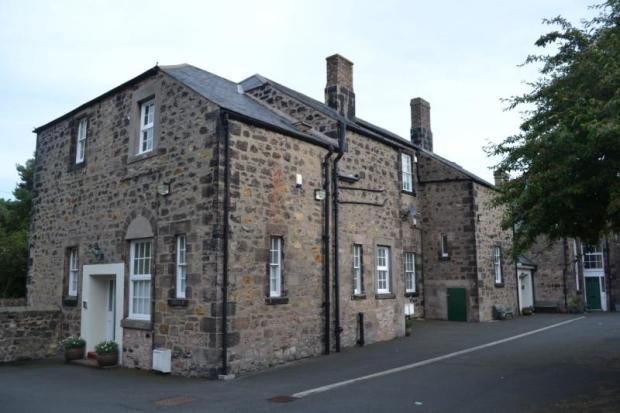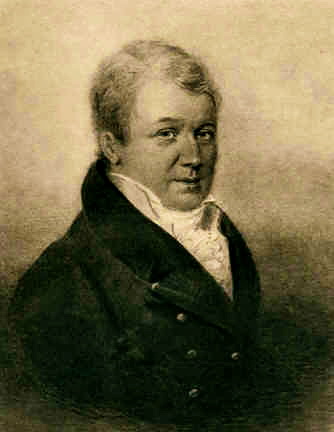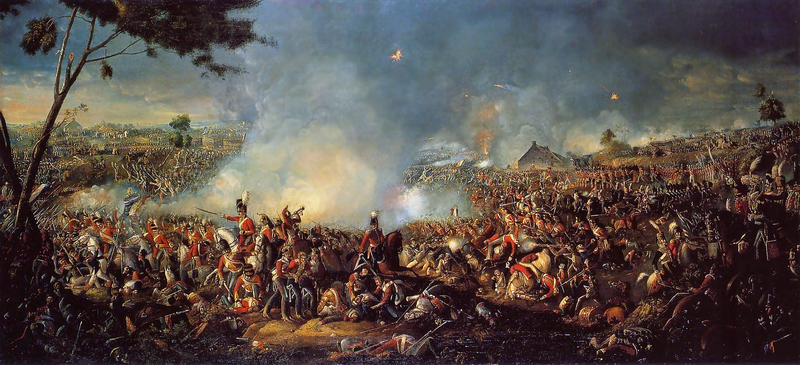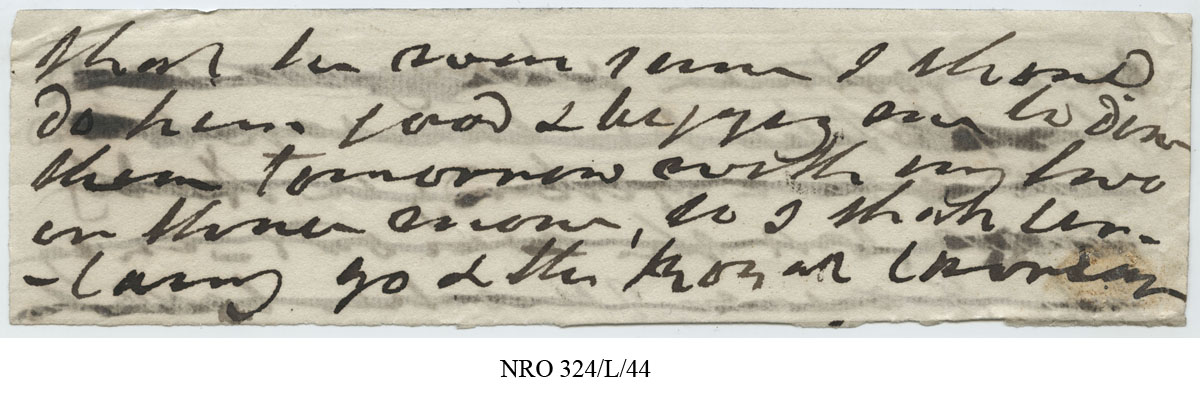BERWICK ADVERTISER, 9 MARCH 1917
LOCAL NEWS
Local Minister and the Food Problem. – In compliance with the recommendation of the Food Controller the Rev. John Macaskill, M.A., on Sunday in Wallace Green Church, Berwick, directed the attention of the congregation to the circular letter he had received regarding voluntary rationing. To the young people present he delivered a short but most interesting address based on the words, “Gathering up the fragments.” He showed how much food could be saved if each was to take care of the small pieces of bread that were over at meal times, and how great this waste amounted to in the aggregate. The same lesson applied to the diligent use of time. People often remarked how clever such and such a person was, but the explanation of this was to be found in the fact the individual alluded to made proper use of his odd moments in improving and storing his mind with useful knowledge. The reverend gentleman’s subsequent sermon was in a similar theme, and in concluding he pointed out that no doubt after the war habits of thrift of a bygone generation would be inculcated. Some might be inclined to think that we would lose the habits of hospitality for which our nation had been known. While restraints were good we must see that in the end it did not deprive us of our open handedness and our willingness to share the good things of life with others, cultivating and social fellowship which we remembered as one of life’s assets.
The “Tanks” at the Playhouse. – This week the film on exhibition is the “Fools of Fate,” The variety part is sustained by Miss B. Wright, contralto vocalist, in scena song and gipsy
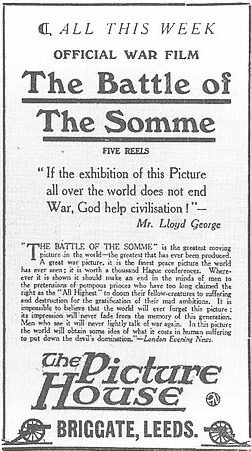
encampment. There should be a great desire on the public’s part to witness the film on Monday, Tuesday, and Wednesday, as it is one which attracts attention everywhere. “The Battle of the Ancre and the Advance of the Tanks” will prove the most in spiriting war picture the world has ever seen. It is a noble and wonderful record of the great autumn battle, and is even more interesting than the world-famous picture “The Battle of the Somme.” The pictures have been taken on the actual battlefield, and contain nothing whatever in the nature of faked or made-up scenes. The film is divided into four parts, and the boldness of the forward dash, and the manner in which the Tanks arrived to upset the German calculations are all shown in these wonderful pictures, which in the wealth of their subject excel anything the world has ever seen. On Thursday, Friday, and Saturday the film is to be “The Miracle of Youth.” It is a picture version of the famous novel by Bret Harte, with Hobart Bosworth in the title role. The characters portrayed are exceptionally fine, the settings and photography being magnificent. Carino, the boy violinist, should prove an excellent variety programme, as he is a master of this sweet instrument.
Speed of Military Motor Vehicles – an order by the Scottish Command states:- With reference to the W.O. Letter, 92/2508 (A.G.3), dated 4th February 1915 (Command Order No. 309, dated 9th February 1915), attention has been drawn to the increasing number of fatal street accidents caused by Government cars or privately-owned cars driven by officers and men in uniform, and it is desired to impress on all ranks that the local speed rates must be strictly observed when travelling on duty. Special arrangements have been made for authorising cars to proceed at a speed in excess of the legal limit in case of extreme military urgency by the issue of a special written authority, and it is solely under this condition that any deviation in excess of the normal speed rates is permissible. Should any omission to observe this order render an officer or man liable to prosecution by the police authorities, and subsequently conviction, they will themselves pay any fines which may be incurred. The attention of all A.S.C. M.T. drivers should be drawn to paragraphs 6 to 10, appendix 27, Army Service Corps Regimental Standing Orders.
BAMBURGH
German Claims Descent from Grace Darling – At Liverpool a charge of making a false statement was preferred against Weximilian Eugene Backhans (37), and alleged German who posed as a Belgian. A detective stated that prisoner married an English woman 14 years ago, and claimed that his wife was a descendant of Grace Darling. There were three children. Before the war the prisoner was known as a German, and had boasted of what Germany could do to England. Evidence was given by an hotel manager and a waiter, who had known and worked with accused, that he was undoubtedly a German. The latter witness added he knew accused to be German, and once gave him a thrashing, “Only as recently as January, “said witness. “I met him. I am in the Volunteers, and said to him: Haven’t the interned you yet? I’ll see that they do. I’m not going to do volunteering if your at large.” Accused contended that he was born at Ostend. The magistrate said accused must go to gaol for three months.
FOOD RESTRICTIONS IN WORKHOUSE
The Local Government Board recommended that selection of rations be made involving the consumption of smaller quantities of flour, meat, and sugar, and a list of alternative articles substituted could be revised with the assistance of the medical officer. No dietary tables which appeared in excess of the Food Controller’s recommendations was to remain in force after 31st March. The relief in kind to the outdoor poor was also to be revised, while allowances to officers were to be a matter of arrangement between them and the Guardians.
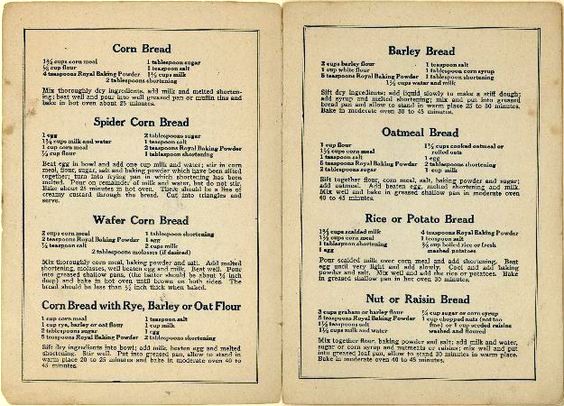
Mr Banks, Workhouse master, said that in the matter of meat, sugar, and flour, they were already within the Controller’s standard. The Medical Officer had pointed out the difficulties in getting substitutes in some instances, but he agreed that barley should take the place of flour bread. He had communicated with the baker, and he had promised to send up samples of barley bread. It was stated by the baker that he could make 1 lb. loves of barley, and if this suggestion was carried out it would bring down the allowances of bread to 4 lb. 2 ozs, per week.
In answer to Mr Peacocke the Master said that the children got fed according to individual requirements.
It was agreed to leave the matter in the hands of the Master and the Medical Officer.


